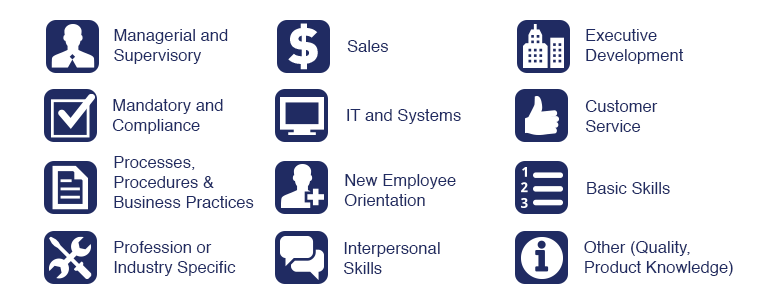The 12 Corporate Learning Content Areas… and Where Games Fit
When it comes to game-based learning, 2014 is the year of theory moving into practice. An increasing number of organizations are planning initiatives to include games in their learning solutions. The research has been validated and plans are being set.
But if you’ve never designed a game before, or tried to include a game in your training, where do you begin?
The answer, of course, depends on the type of training you are developing. The 2013 ASTD State of the Industry report includes a wonderful table with the twelve most common content areas found in corporate training. Some of these content areas are rather broad, but they are a great starting point for visualizing the types of training we frequently develop. The content areas are shown below:
The type of game you might create will vary widely for each content area. I’ve included a general suggestion or two for each content area below, but the list is not exhaustive! Use the suggestions as a starting point.
Managerial and Supervisory:
Soft-skills training often (but not always) works best in face-to-face situations. Why not use a role playing game to give learners situational practice? Rote Q&A, points, and badges will be of less value.
Mandatory and Compliance:
This is the sort of information we need to know, or our organization needs us to know. Since it often requires memorization, compliance training can be tedious. Consider a game that puts the content in a fun setting and employs some research-based learning principles to help people memorize the information faster.
Processes, Procedures, and Business Practices:
Processes and procedures are often foundational knowledge, just like compliance. Gamifying the process of basic memorization will work well here, but make sure you add context when possible. Even a game centered around Q&A can have context if you add highly relevant scenario questions.





